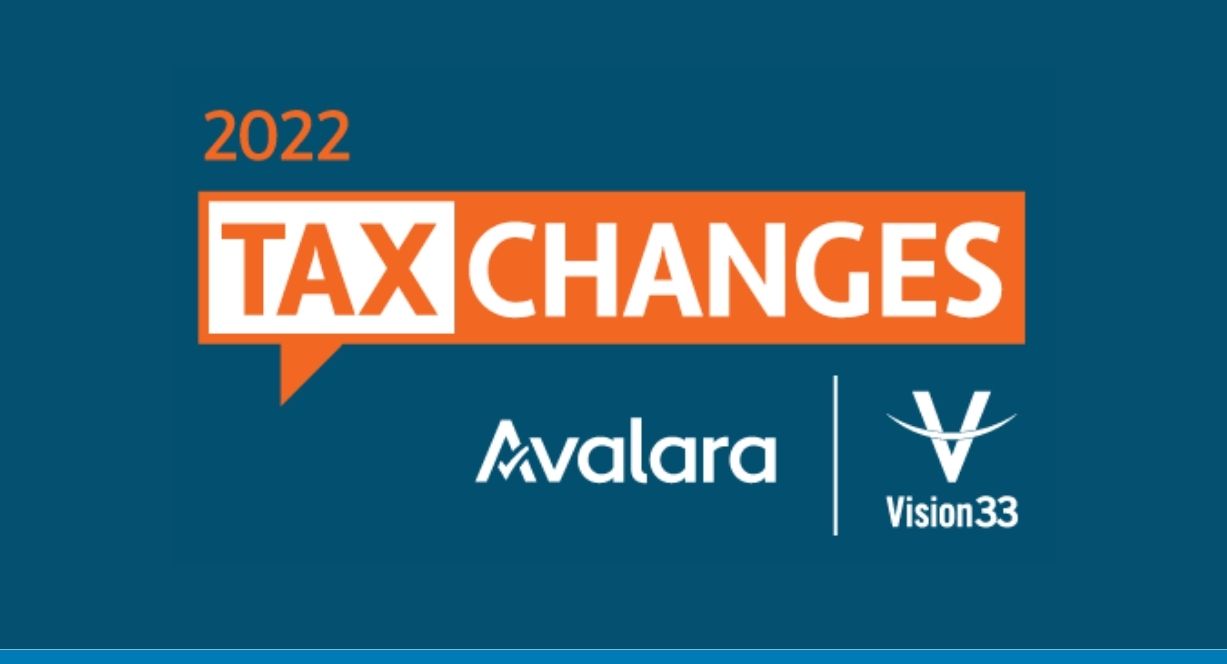FortPro Paves the Road to Success With Vision33’s Customer Portal for SAP B1
SAP Business OneWith Vision33's Customer Portal, FortPro’s salespeople can focus on higher-value tasks like...

March 16, 2022
Blog > 2022 Sales Tax Changes: What You Need to Know to Avoid an Audit
You may think the tax structure that exists state to state is pretty straightforward. You probably know if you live or work in a state that charges personal or corporate income tax.
But across the United States, sales tax is radically different between states. Every state has its own rules regarding what’s taxed, rates, and boundaries.
For example, city boundaries often change. If you’re in a state that imposes taxes at the city level and use zip codes to manage your tax compliance, you have high odds of being audited.
That’s just one example of something that increases your audit risk.
Vision33’s Carl Lewis chatted with Scott Peterson, VP of U.S. Tax Policy and Government Relations at Avalara. Scott discussed the pandemic’s effects on sales tax policy, what it means for businesses, how to avoid an audit, and how to make it as painless as possible if you do get audited.
Here are some highlights.
The pandemic dramatically accelerated eCommerce, and that enormous increase in online spending resulted in an equally enormous increase in sales tax collections.
Every state except Missouri now has an economic nexus statute, so, in addition to collecting sales tax if you’re physically present in a state, you also must collect sales tax based on where you make sales. That means your customers determine where you collect sales tax.
Economic nexus thresholds vary from state to state, so it’s critical to do some research.
Your remote workforce is an audit concern because remote employees are a “physical presence” that create a tax obligation. If your employees work in states different from those you hired them in, you could be at risk for an audit. You must know where all your employees are physically located so you can answer auditors’ questions.
Until a few years ago, marketplaces like Amazon, Etsy, and Walmart didn’t collect sales tax because they were facilitating the sale of someone else’s products, not selling their own. But 2018’s South Dakota v. Wayfair, Inc. ruling deemed these marketplaces retailers and required them to collect sales tax on any merchandise facilitated through their marketplaces.
It will take years for the states to iron out how this works. The good news for marketplace sellers is they’ll likely face fewer audits. The bad news is that the marketplace laws in different states have one thing in common: they relieve the marketplace of liability when a seller makes a mistake.
Let’s say you’re selling shoes through a marketplace, but you mistakenly map the shoes to food in the system. The system says shoes are taxable, but food is exempt. If the marketplace doesn’t know you’re selling shoes and gets audited, the marketplace will shift the liability to you.
The marketplace has first liability but will pass liability to the seller if whatever triggered the audit was the seller’s fault. If you sell through a marketplace, you need to know exactly what your contract entails and be vigilant in your interactions.
Because we stopped keeping all our records on paper in our offices, we can send digital documents to auditors. In theory, that’s a good thing. Virtual audits are faster and less painful because we don’t need to clear a space in the office for the auditor or interact with them.
But states have realized how much time was wasted on auditors traveling to businesses. Now that the process has become more efficient, they can conduct more audits.
It’s critical to understand how changes in state tax policy affect your business. Avalara has created a comprehensive report that details:
Get your free copy of the report below!
Subscribe to our newsletter to receive our latest blog posts, case studies and ERP news delivered straight to your inbox.
With Vision33's Customer Portal, FortPro’s salespeople can focus on higher-value tasks like...
Explore the four SAP Business One Bill of Material (BOM) types—Production, Sales, Assembly, and...
Watch the H&S Building Supplies success story to learn how SAP Business One’s all-in-one solution...
Recieve our latest blog posts, case studies, and ERP news
delivered straight to your inbox.